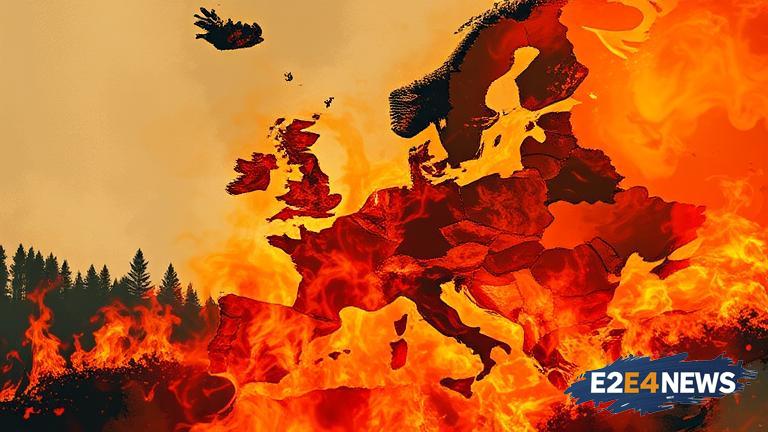The recent surge in wildfires across Southern Europe has left a trail of destruction and confusion in its wake. As the flames continue to rage, politicians and experts are locked in a heated debate over the causes and consequences of these devastating fires. Climate change, land management, and human activity are all being cited as contributing factors, but the complexity of the issue has left many scratching their heads. In countries such as Greece, Italy, and Spain, the wildfires have ravaged vast areas of land, displacing thousands of people and destroying countless homes and businesses. The economic impact of the fires is already being felt, with tourism and agriculture being particularly hard hit. As the region struggles to come to terms with the scale of the disaster, the European Union has pledged support and funding to help affected areas recover. However, the response from some governments has been criticized as inadequate, with many calling for more urgent action to be taken. The role of climate change in the wildfires is a major point of contention, with some arguing that it is the primary cause of the fires, while others claim that it is just one of many factors. Land management practices, such as the use of firebreaks and prescribed burning, are also being scrutinized, with some arguing that they are not being implemented effectively. Human activity, such as arson and accidental ignition, is also being blamed for some of the fires. As the debate rages on, the people of Southern Europe are left to pick up the pieces and wonder what the future holds. The psychological impact of the fires should not be underestimated, with many people experiencing trauma and anxiety as a result of the disaster. The environmental impact is also a major concern, with the fires releasing large amounts of carbon dioxide and other pollutants into the atmosphere. As the region looks to rebuild and recover, there are many questions about how to prevent such disasters from happening in the future. The use of technology, such as drones and satellite imaging, is being explored as a way to detect and prevent fires. The role of international cooperation and funding is also being highlighted, with many arguing that a coordinated response is needed to tackle the global issue of wildfires. The European Union’s Civil Protection Mechanism has been activated, providing support and resources to affected countries. However, some are arguing that more needs to be done to address the root causes of the fires, rather than just providing a response to the symptoms. As the situation continues to unfold, one thing is clear: the wildfires in Southern Europe are a complex and multifaceted issue that requires a comprehensive and coordinated response. The coming weeks and months will be crucial in determining the long-term impact of the fires and the effectiveness of the response. The people of Southern Europe will be watching with bated breath as their leaders and experts work to find a solution to this crisis. In the meantime, the international community will be keeping a close eye on the situation, offering support and assistance where possible. The economic, environmental, and social impacts of the wildfires will be felt for years to come, making it essential that a long-term plan is put in place to prevent such disasters from happening in the future. The use of sustainable land management practices, such as reforestation and agroforestry, is being promoted as a way to reduce the risk of wildfires. The importance of climate change mitigation and adaptation strategies cannot be overstated, with many arguing that these are essential for reducing the risk of wildfires and other extreme weather events. The role of education and awareness-raising is also being highlighted, with many arguing that this is key to preventing human-caused fires and promoting sustainable land use practices. As the region looks to the future, there are many reasons to be hopeful, but also many challenges to be overcome. The response to the wildfires will be a major test of the region’s resilience and ability to adapt to a changing climate. The coming years will be crucial in determining the long-term impact of the fires and the effectiveness of the response. The people of Southern Europe will be watching with interest as their leaders and experts work to find a solution to this crisis. The international community will be keeping a close eye on the situation, offering support and assistance where possible. The economic, environmental, and social impacts of the wildfires will be felt for years to come, making it essential that a long-term plan is put in place to prevent such disasters from happening in the future.





